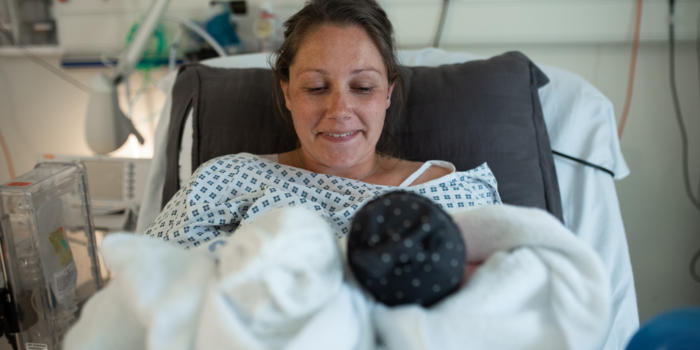The prospect of birth can be such a daunting one that many parents find it hard to think beyond that miraculous and improbable event.
Try to bear in mind that once your babies are here, you will be very busy. The time before they arrive is a great opportunity to research some of the practical issues ahead of you, reading up on everything from what happens in a multiple birth to twin/triplet sleep routines.

There is nothing like meeting other parents who already have young twins, triplets or more for finding out what you really need to know – such as which equipment you will need extra sets of. You may even be able to pick up some useful items second-hand.
Twins clubs are also a great place to take any older siblings for a visit to get them used to the idea of two or more arriving. Clubs usually go out of their way to make expectant parents welcome, and once your babies are here, they will offer a haven of friendly and understanding company. Find your nearest multiples club.
Please also consider joining Twins Trust. Membership costs from £2.80 per month (less for those on a low income) and benefits, a quarterly magazine, discounts with more than 100 companies and access to useful resources (including factsheets, family days, and health and education professionals).
Looking ahead: feeding and sleeping
Pregnancy is a good time to think about how you might feed your babies. If you want to breastfeed – and lots of multiples mums do – then it can help to attend antenatal classes specifically for multiple pregnancies, as they usually have a session on breastfeeding. Contact us at Twins Trust to find out more about our own antenatal classes for those expecting twins or more.
If you are not sure about the relative merits of bottle-feeding, breastfeeding or a mixed approach, it can help to talk to other parents who have been there. Again, your local twins club is a great place to start. For a detailed account of how to breastfeed twins, triplets or more you can download Twins Trust’s booklet, Breastfeeding more than one. If you would prefer to talk to somebody about breastfeeding multiples, Twins Trust run a breastfeeding peer support service that consists of 12 trained volunteers that have all breastfed twins and can offer mother-to-mother information and support to families who wish to breastfeed their twins, triplets or higher order multiples.
It’s recommended that you keep your babies in your room for the first six months if you have enough space. Many babies share a cot for the first month, sometimes longer, and research suggests that they tend to have similar sleeping patterns and don’t wake up more often than babies who sleep apart. For more on cot-sharing, download Twins Trust’s Sleep factsheet.
And finally....
Multiples often arrive early – sometimes very early – so it’s a good idea to have your hospital bag packed by week 26.
Towards the end of your pregnancy, cook double portions when you prepare a meal and freeze the extra. Once your babies are here, you will be glad that you have some ready-cooked meals to hand.
Think ahead about getting some help. Paternity leave usually lasts two weeks, plus your partner may be able to take a week or two extra of holiday or unpaid. Beyond that, don’t be afraid to organise any willing family or friends into a rota so that you know you will have an extra pair of hands arriving at regular intervals.
There may also be other sources of free help locally such as Homestart, student maternity nurses or childcare students. Homestart can be invaluable for parents of multiples, but it takes a while to process the paperwork. If you want to have that option then get it underway before the babies arrive.
For more on getting ready, what to put in your hospital bag and preparing older siblings for the arrival of twins, triplets or more, please download our Healthy Multiple Pregnancy Guide.
-strap.svg)